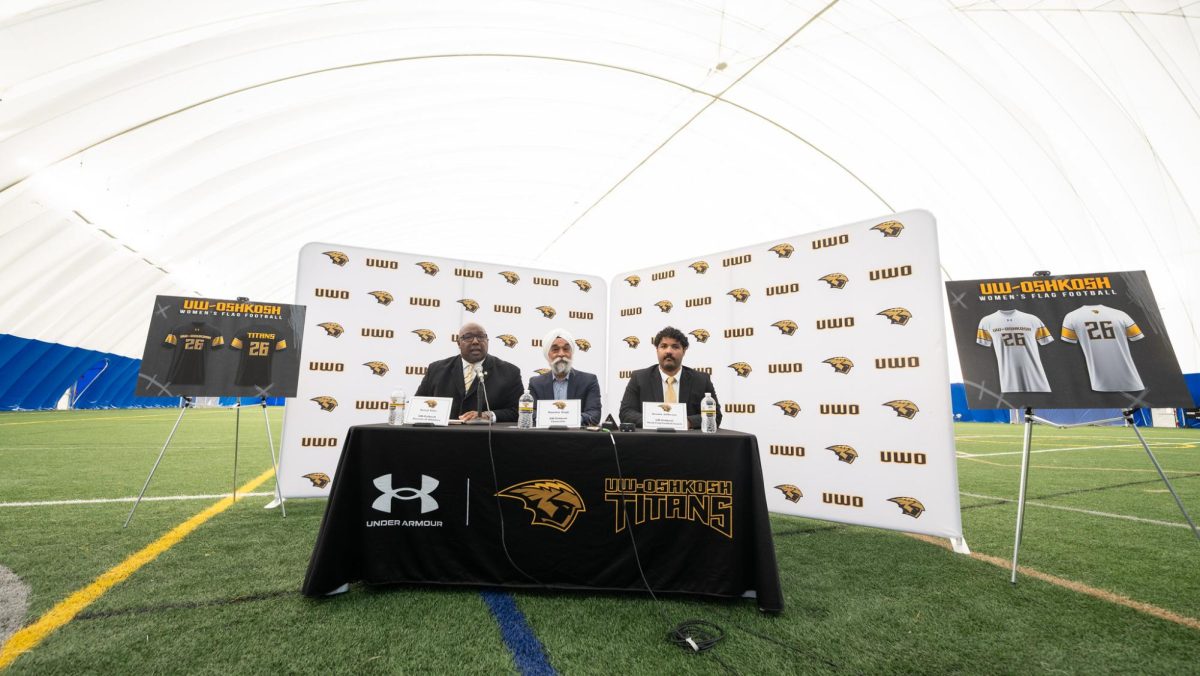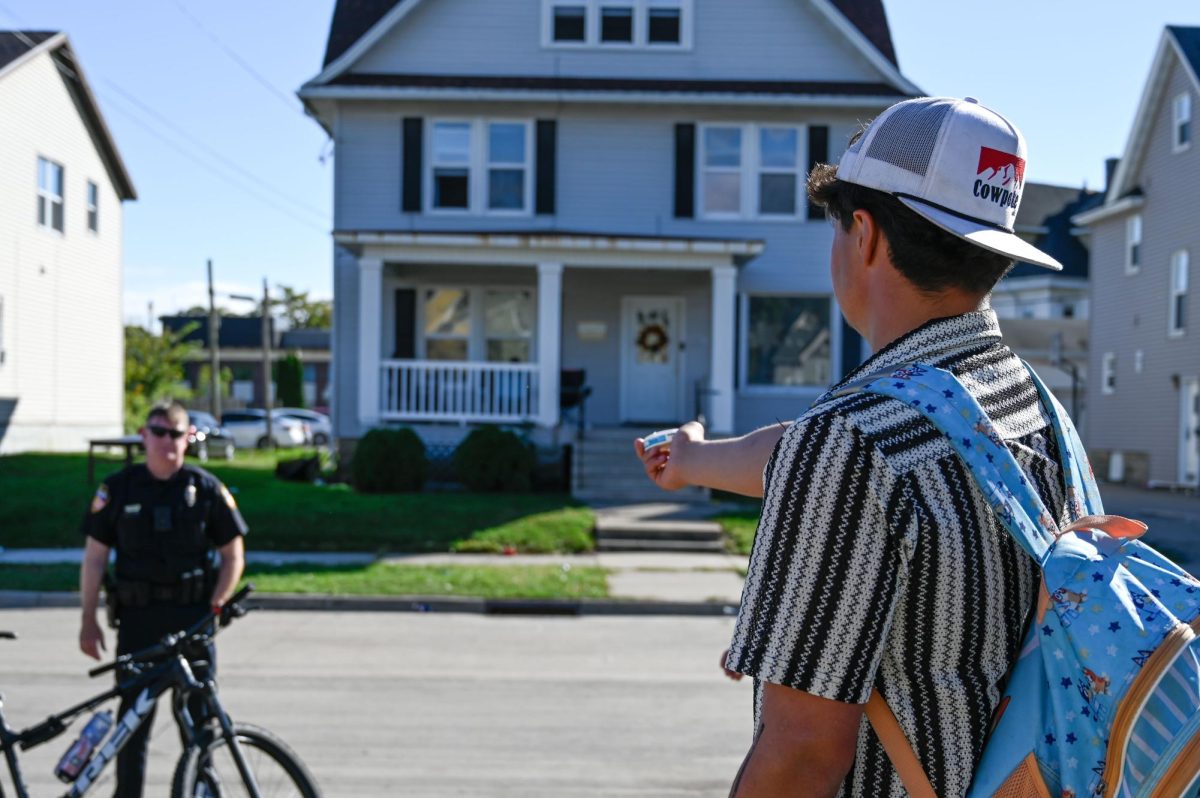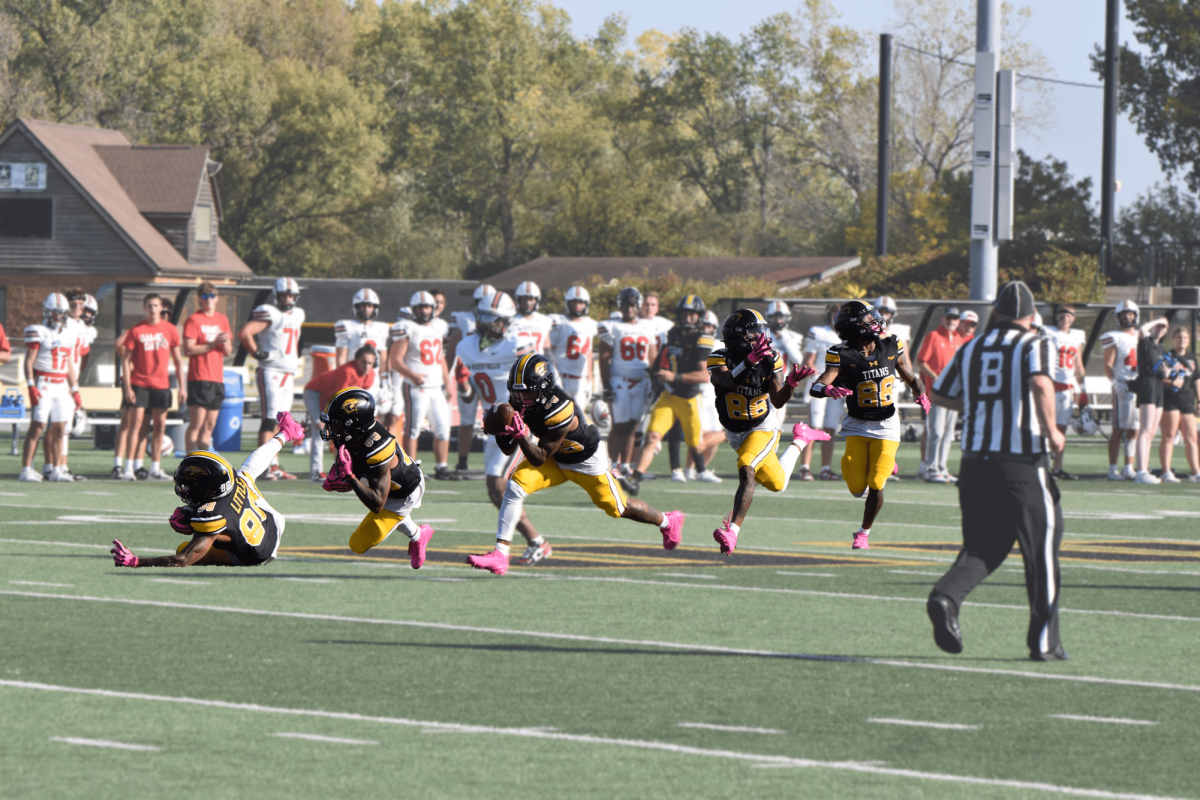UW Oshkosh administrators are facing backlash as UWO is being confronted with 200+ layoffs and furlough assignments due to an $18 million deficit.
The Universities of Wisconsin, formerly called the UW System, is coming out of a 10-year tuition freeze and state funding has been fairly stagnant for the past few years. Currently, UWO is largely dependent on tuition as its main source of revenue.
“Our enrollment has declined pretty dramatically over the last six, seven-plus years,” said Alex Hummel, chief of staff and spokesperson for UWO.
Currently, all UW system schools are facing enrollment declines due to two major issues: Wisconsin’s aging demographic and a shrinking number of young people choosing to attend a four-year school.
Hummel called it the “matter of selection,” as there are many options for high school graduates in the state.
COVID-19 brought some financial relief with the federal government offering COVID-19 relief bonds that acted like a buffer for UWO.
UWO suffered a spike in retention loss during COVID-19, but that was a trend seen across the system, Hummel said. However, coming out of COVID-19, UWO suffered another enrollment decline.
“We had a big one coming out of COVID and used our reserves to further buffer those losses,” Hummel said.
Administrators have been working to combat enrollment declines by “trying to attack the revenue side of the operation,” he said. “It’s been very difficult and hasn’t gone the way we’d hoped it would have gone.”
Now, UWO is facing a 200+ workplace reduction along with mandatory furlough days for most faculty and staff. Only those making less than $33,000 are exempt from furlough.
Workplace reductions are a response to the diminishing student population since there are currently too many staff compared to students.
“You know, we’re still a workforce that’s set up to serve the student population that we had several years ago,” Hummel said. “And we no longer have reserves to help us weather this. It makes (for) some very, very difficult decisions.”
Many members of the UWO community have been critical of the UWO administration and have questioned whether the decline in the number of high school students was followed closely by enrollment management.
Hummel said that, throughout the system, the decline in high school students has been watched very carefully.
However, the UWO community doesn’t seem to agree.
“It seems as though their strategy was primarily to hire more highly paid administrators, buy expensive software, consolidate and centralize programs and leave the strategy to the experts,” Paul Van Auken, professor and chair of the sociology department said. “And it hasn’t worked.”
Cindy Schultz, the journalism department associate, echoes that same sentiment.
“We knew this problem had been coming for years, and while they hired an AVC (assistant vice chancellor) for enrollment management, each year our numbers continued to go down,” Schultz said. “You are paying someone a six-figure salary, for what?”
Professor of communications studies Tony Palmeri said the Cooperative Academic Partnership Programs (CAPP) at UWO has long been “one of the most outstanding.”
“Under the great leadership of Dr. Cathy Bryan and Mr. John Dobyns, CAPP has recruited numerous high school students to UW Oshkosh,” Palmeri said. “Both Dr. Bryan and Mr. Dobyns have opted to retire at the end of the year. Their leaving is a prime example of the high caliber of experienced talent we lose when the university pits budget savings against what should be urgent priorities like recruiting high school students.”
Originally, the university’s goal was to boost enrollment as much as possible through marketing efforts, Hummel said.
“[Now] I think we’re concentrating on just stabilization,” he said.
UWO is attempting to handle the budget deficit holistically. Currently, other schools throughout the system are basing their deficits off of the numbers from fiscal year 2022.
UWO is projecting an $18 million deficit by fiscal 2025 if no action is taken. UWO is not currently in the red $18 million.
Hummel said we’re “getting into the throes of it right now,” and the $18 million number isn’t necessarily analogous to the numbers the other schools are working off of right now.
Furloughs and workforce reductions are being looked at as “transitional tools” between now and fiscal year 2025.
“I do know there (are) institutions looking at furloughs,” Hummel said. “And I think there are some others too that are looking at their workforce. I don’t know what actions they’ll prescribe.”
Questions have arisen about the Fond du Lac and Fox access campuses. Community members and students enrolled on those campuses wonder whether or not they are on the chopping block after UW-Platteville’s Richland campus announced its closure in November 2022.
Fox currently has 549 undergraduate students enrolled while Fond du Lac has just 238.
“That conversation continues at the UW System president and regent level,” Hummel said. “They’re the ones that are conferring with access campuses’ chancellors.”
Administrators said they knew that when they announced that UWO had an $18 million deficit that it could harm the school’s reputation.
Hummel said administrators have been watching to make sure students still felt confident attending UWO this fall and thinks it was helpful that students saw UWO attacking the issue head on.
Regardless of budget deficits, Hummel said he still thinks UWO offers an amazing experience.
“We made a commitment to do everything we can in our power to shield those experiences for students from any negative harm,” Hummel said. “And we’re confident we can do that.”
Administrators are also working to avoid a “ripple effect” of too many students experiencing negativity on campus due to the Institutional Realignment Plan (IRP).
“What we’re doing in addition to managing this workforce reduction effort, you know, is not just merely an exercise in saying goodbye to people,” Hummel said. “It’s also an exercise in holding ourselves accountable and absorbing the duties, responsibilities and support that those good people have helped deliver over the years on a smaller employee base.”
Everything comes down to student success and how the student experience can be preserved.
“What things can we let go that we were doing that maybe aren’t as responsive to student needs or their time here?” Hummel said.
Schultz said she believes that there is no way administrators are keeping students out of the crosshairs.
“What is going unanswered is how is this university going to survive?” Schultz said. “Students are going to be negatively impacted when they cannot find someone within a department office to answer their questions and assist them because they have been laid off. How are we going to keep the doors open? How is the work going to get done? Who is going to be here to support the faculty and students?”
According to the Universities of Wisconsin accountability dashboard, the number of administrators at UWO stacks up fairly evenly to all the other UW schools.
Hummel said all UWO administrators, besides Provost Edwin Martini, are taking furlough days. Martini chose to take a temporary base salary reduction to aid in continuing his work in academic planning this school year.
UWO’s administration is doing its best to work closely with shared governance around campus to keep all channels of communication open, Hummel said.
“We’re doing our very best to work together, I really do believe that,” Hummel said. “[To] find the way forward, it’s very difficult, it’s very painful, but people are looking out for the institution and its future.”
In the midst of this financial crisis, two large changes have happened at UWO: Clow Hall’s multimillion dollar renovation was completed and UWO launched a $2.1 million marching band. According to the UWO Foundation, donors have donated more than $156,000 for the Titan Thunder Fund and Titan Thunder Scholarship Fund. Most of that funding has been available to support the program’s general fund, Hummel said.
Schultz said she feels that once the layoffs have taken place, UWO will see an even larger divide in the relationship between faculty and staff and administrators.
“I do not feel that they are being truthful about everything,” she said. “How could we have been in such fine financial shape two years ago, as was reported to the Board of Regents, but now we are $18 million in the hole? There is no accountability at the upper levels and there truly needs to be.”
Van Auken sees a similar divide.
“I have been here for 17 years and this is definitely the worst it’s been,” he said. “The gulf between us is huge.”
Van Auken and many of his colleagues love UWO and want to invest time into improving the financial situation.
“We love this place and have ideas about how to make a terrible situation better, but it doesn’t seem that the upper administration is very interested,” he said. “It seems that they are hunkered down in Dempsey and continue to give the impression that faculty are somehow to blame for our issues.”
Van Auken and some of his colleagues expressed concern to the chancellor and the provost last spring, but didn’t get much of a response.
“It’s of course only gotten worse, particularly because the transparency in their decision-making is low and the accountability being taken by administration even lower,” Van Auken said. “I wish it were better, but this is how I see it at this point.”
Editor’s Note: This story has been updated to correct the cost of the marching band, as well as to add the amount donated to the band.




















